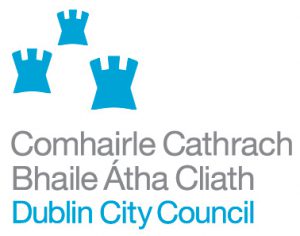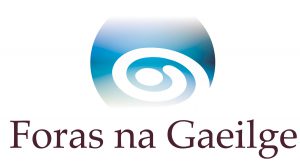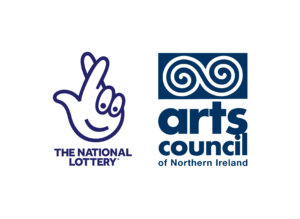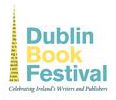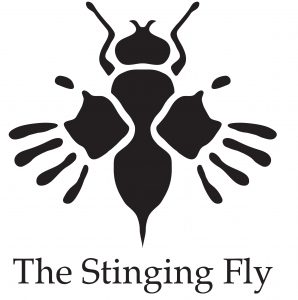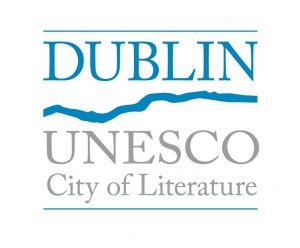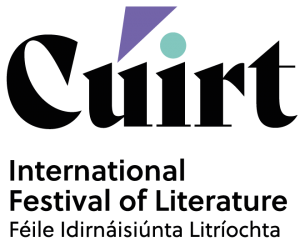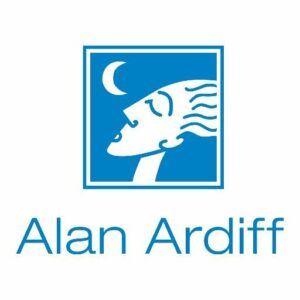28 October, 2016
Interview with Lisa Harding
 Lisa Harding is a writer I truly admire. She nails *voice* like no-one else I know both in her short stories and in her newly-penned novels. This month (October) she signed with New Island Books for a controversial novel about trafficked teenagers (published next Spring) and she’s also Writer in Residence with Pavee Point in association with the Irish Writers Centre. I meet with Lisa fortnightly at our writer’s group in Brooks Hotel on Drury Street, so am familiar with her work and also with her struggle to stay earning while pursuing a life as a writer. I wanted to ask her some relevant questions that may be of use to other writers starting out on a similar track.
Lisa Harding is a writer I truly admire. She nails *voice* like no-one else I know both in her short stories and in her newly-penned novels. This month (October) she signed with New Island Books for a controversial novel about trafficked teenagers (published next Spring) and she’s also Writer in Residence with Pavee Point in association with the Irish Writers Centre. I meet with Lisa fortnightly at our writer’s group in Brooks Hotel on Drury Street, so am familiar with her work and also with her struggle to stay earning while pursuing a life as a writer. I wanted to ask her some relevant questions that may be of use to other writers starting out on a similar track.
Let’s start with where things are at for you at the moment and that includes being on the radio recently to talk about your current accommodation difficulties. You made a very valid point that one in four people in Ireland rent and these numbers are growing, yet nothing solid has been done about the appalling conditions and escalating prices. You have your first novel coming out in 2017 with New Island Books; you are trying hard to contribute to society but as a freelance teacher, actress and writer, you feel that your own basic needs are being violated over and over. It’s a side to the writer’s life that’s maybe not talked about a lot. Can you elaborate?
This tension is a biggie for me: How to continue with my creative work while keeping a roof over my head? My balance isn’t what it used to be, and I don’t think I like teetering on that high-wire anymore…I moved back to Dublin almost seven years ago after thirteen years living out of a suitcase as an actress in London. That was all fine, then. But the time came when I wanted to move home to create some stability and focus more on writing. Since moving back I’ve had six moves in six years because of landlord’s vagaries: rent increases, taking back property for family members, selling under my feet and sometimes impossible living conditions such as no heat and damp.
How do artists live in a city where the average cost of renting a studio/one bedroom sub-standard dwelling is €1,000 a month? As Martin Doyle wrote in the Irish Times on the 7 Oct, the median income of professional authors is €12,000, but the typical median income of all writers is less than €4,000. So boohoo, some people say, grow up, get a ‘proper job’, or marry a rich man (yes, I’ve heard that one a few times!) or move out of Dublin, or share with a bunch of twenty-somethings. I love my hometown and happen to believe that the arts are an important, integral part of any society. Also, having spent over a decade in London, I don’t want to uproot again and be in a place where I know no one. Dublin has a rich tradition of producing writers, actors, theatre-makers. We pride ourselves on our culture, yet some prominent arts practitioners that I know live on less than the minimum wage.
I wish I knew the answer to this conundrum, but I know for sure that if I weren’t running around stressing and doing all my other jobs, which still don’t bring in enough for me to create a stable home I’d have much more time to spend on creating new work.
Tell us about your first novel, the genesis of the idea, how you decided to go about it?
When I was acting in Fair City, I was approached by a representative for The Body Shop to read some monologues written by girls who had been trafficked into this country. This was part of a campaign run in conjunction with the Immigrant Council of Ireland to stop the trafficking of children. I had no idea of the extent of the industry; how so many of these girls were so young and were being visited by men from all sectors of society, some of whom had daughters at home. I found the experience of reading the statements traumatic and wondered how their young bodies and minds could survive and assimilate this abuse. Or could they?
The testimonies I read aloud were true stories of girls who were now in safety, but I could feel their splintered psyches even in the simple language they used to relate the facts of their captivity. I really didn’t want to think any more on it, but I was haunted by their stories and couldn’t push these girls out of my mind. I tried. I wrote a series of unrelated short stories, but something was gestating and Iliterally felt compelled to write it. Some kind of a testament to these girls, to try to give ‘voice’ in some way. There was always the worry for me of ‘trespassing’ on other people’s misery, and not writing about something I’ve had no first-hand experience of, but once I became convinced that my motivation was coming from a pure place, I gave myself permission to write Harvesting. The novel has subsequently been read and approved of by a number of NGO’s who believe that the immersive accounts of two girls trapped in this world may raise awareness in a way that no amount of journalistic reports could.
You are currently the IWC Writer in residence with Pavee Point, what does this involve, what have you learnt so far?
My group is very varied in age and writing ability, so the sessions are mainly being mediated through discussion and aural storytelling. We are exploring the concepts of identity and purpose through the prism of inter-generational change. Some of the older women in the group are in their seventies and have lived through the enforced settlement and assimilation program of the 1960s. Others in the group are in their twenties and were born in houses and have never experienced life on the road. High levels of unemployment and suicide, are, the older generation believe, a direct result of loss of identity and purpose that the traditional traveller embodied in their roles as tinsmith, palmist, storyteller, voyager. They also cite a loss of connection with nature as instrumental in a growing depression. We are in the process of documenting these changes for each individual in the group. I want to record a series of podcasts addressing these issues, with personal resonances.
Your career before now was mainly acting, do you find that this has helped with ‘voice’ and ‘character’ in your fiction?
It’s definitely my strength in writing fiction, but also one of my limitations. I wrote a series of plays before attempting prose, and tend to approach all my fiction with that same dramatic intent. I always write in ‘voice’, even in a third person narrative, which is instinctive, but also highlights (for me) my lack of ability to write a long-lens third person, past tense narrative. I find the traditional form of the novel highly intimidating and have long put off attempting one, but now I just let what happens happen. It’s all story-telling at the end of the day, even if much more clever writers than me attest otherwise! I respond to character-driven work, where things happen on the page. I love beautiful prose too, but never at the expense of the truth of the psychology of the character or the sensibility of the world.
You write both short stories and novels. How do you manage the switch between genres?
I think everything I write is mediated through a dramatic lens, so my first short stories were really long monologues and mini-plays. Likewise my attempts at novels. I love short stories and find the process of writing them really freeing, especially with writers as diverse as Amy Hempel, George Saunders and Lydia Davis out there creating fresh forms. I enjoy writing scenes, where some conflict occurs, some tension in the central character is laid bare. Sometimes I write a series of disconnected scenes with the same characters and then lay them out on the floor like a patchwork quilt. My approach really is that lacking in technique! If the scenes about the same character keep coming then it’s more likely going to be bigger than a short story. I’m beginning to trust and luxuriate in the immersive process of living with characters for a longer period of time and fully inhabiting their psyches. I tend to step inside their skins, in much the same way I used to approach my acting roles. I don’t think I’m any good at ‘genre’ though. I just write in the way that comes naturally to me.
Do you have a writing routine?
My days are too varied, too caught up with making rent to allow a same-time-every-day approach. However, and I’ve only recently implemented this, I do try to write every day, at whatever time that particular day allows. As I’m in the process of first-drafting my second novel, I’m attempting to adapt the Stephen King approach of pushing out a set number of words a day. If I didn’t do this with the longer form, I’d lose momentum and energy. I’m also about to start into the editorial process with New Island on Harvesting and will happily carve out the time and space to do this.
You and I are both involved in Brooks Writer’s Group that meets fortnightly on a Monday afternoon. Have you found being part of a writer’s group useful? What are the pros/cons?
I have mixed feelings about writing groups as I believe sometimes remarks that come about because of another person’s need to sound knowledgeable or intelligent can be damaging, particularly at the beginning stages of a process. It’s important to be able to listen to other people’s opinions and yet not lose your instinctive flavour. I have attended groups where the tutor tried to corral writers into writing how they themselves would write. This is bad practice, and not one I would actively seek out. I have also participated in groups where the opposite was happening: where the individuality of each participant’s voice was nurtured. I believe that we are, in the main, highly critical of our own work anyway and don’t need further slamming, or excuses not to do it.
The pros of belonging to our particular group far outweigh any negatives for me, as we have a good deal of trust in each other’s motivations when critiquing. Everybody’s work is of a standard that means we can only get better by listening to each other. Also, as writing is a lonely undertaking, it’s great to be part of a group of like-minded passionate people. May I also say that I’m delighted to be debut-ing alongside yourself, my fellow Brooks Writer’s Group member, with New Island in 2017!
What keeps you awake at night?
Financial worries (and its attendant shame), family concerns, cruelty to animals, exploitation of vulnerable people… I could go on, but these are to the fore at the moment.
What [further] resources would you like to see for writers aside from workshops, retreats, etc?
In an ideal world I’d magic up more funding opportunities, particularly for writers who really are stressed financially. At the moment none of our funding bodies take the financial situation of the applicant into consideration. Perhaps some sort of a means-tested application would be helpful, alongside a foregrounding of the quality of the work of the applicant? Obviously, I wish publishing houses in Ireland were properly supported and resourced too.
Give me a few examples of fiction that really blew you away/had an emotional impact?
A Little Life by Hanya Yanagihara, My Name is Lucy Barton by Elizabeth Strout, The Narrow Road to the Deep North by Richard Flanagan, Eyrie by Tim Winton, Cloudstreet by Tim Winton. At the moment I’m in a manic novel-reading phase hoping to unlock the secret code! I’m currently obsessed by Tim Winton: his storytelling voice, the beauty, brutality, grace, muscularity, humour, idiosyncrasies of his prose, his flair for writing exciting storylines, for creating colourful characters. He makes me want to read on and then read back again. Gorgeous stylist and masterful storyteller. Maybe some of it will leak through by osmosis. Sigh.
Lisa Harding graduated from the M Phil in Creative Writing, Trinity College Dublin. Three plays: Starving, And All Because, and Playground were performed at Theatre503, Battersea Arts Centre, and the Project Theatre Dublin respectively. Doghouse was work-shopped at The National Theatre Studio. She was awarded an Irish Arts Council Bursary and a Peggy Ramsay Grant for Playwriting. Short stories have been published in The Dublin Review, The Bath Short Story Award Collection 2014, and online on the Irish Writer’s Centre website. Her story ‘Counting Down’ was a winner in the inaugural Doolin Writer’s Weekend Competition. Other work has been short-listed for the Bath, Fish, Listowel, Cúirt, Over the Edge, and Penguin Ireland/RTE Guide short story awards. She has just completed her first novel.
(c) June Caldwell, 28 October 2016


